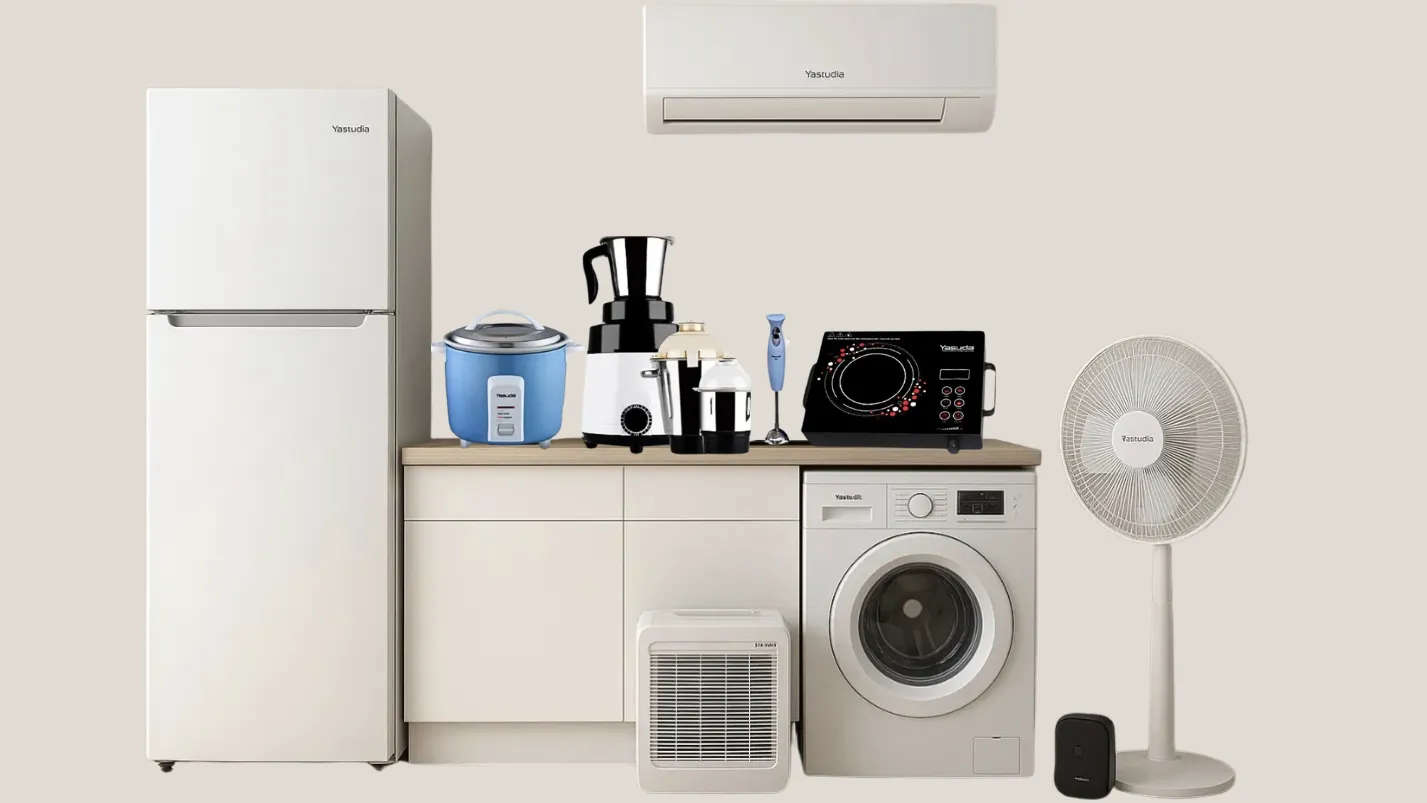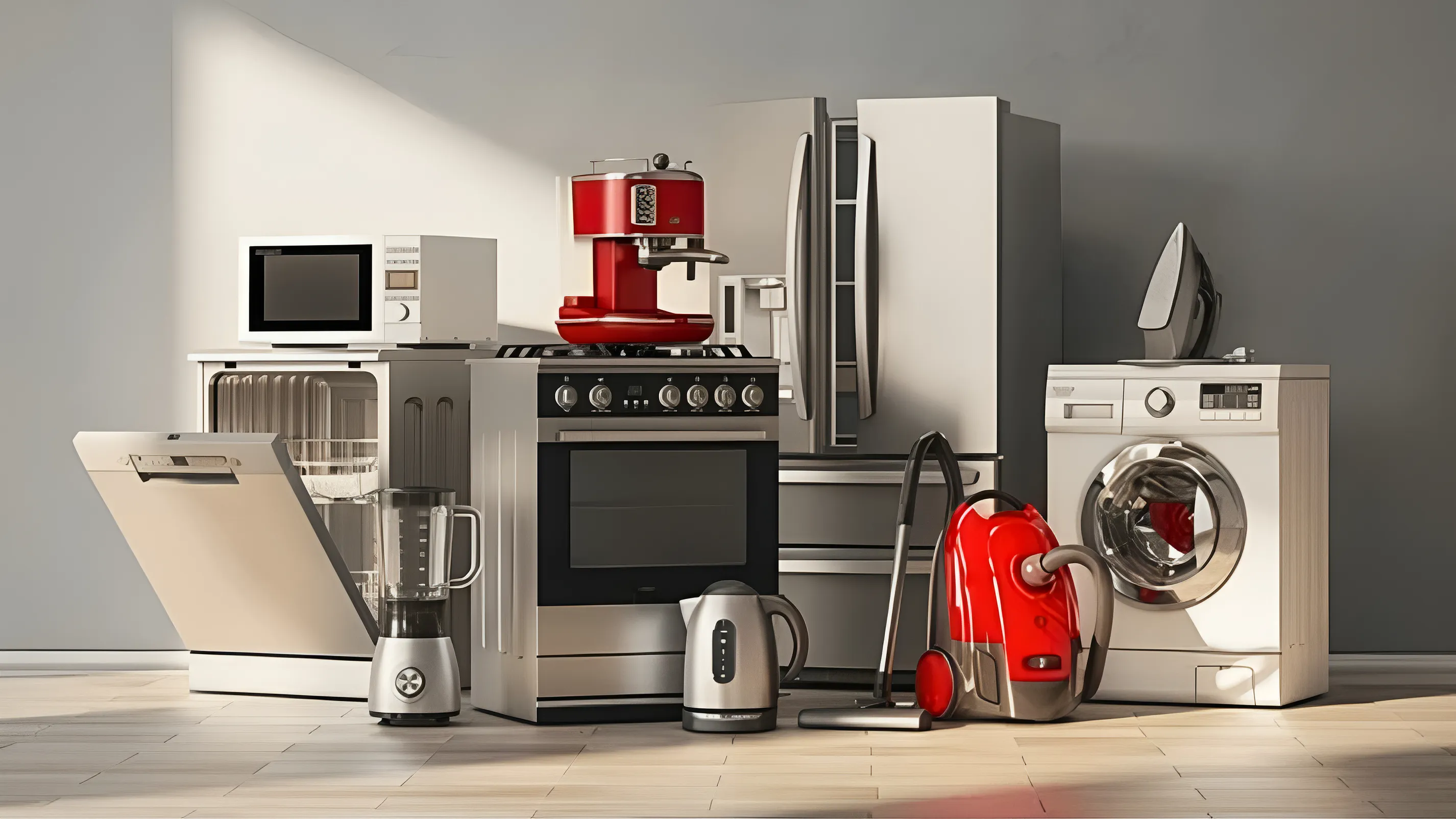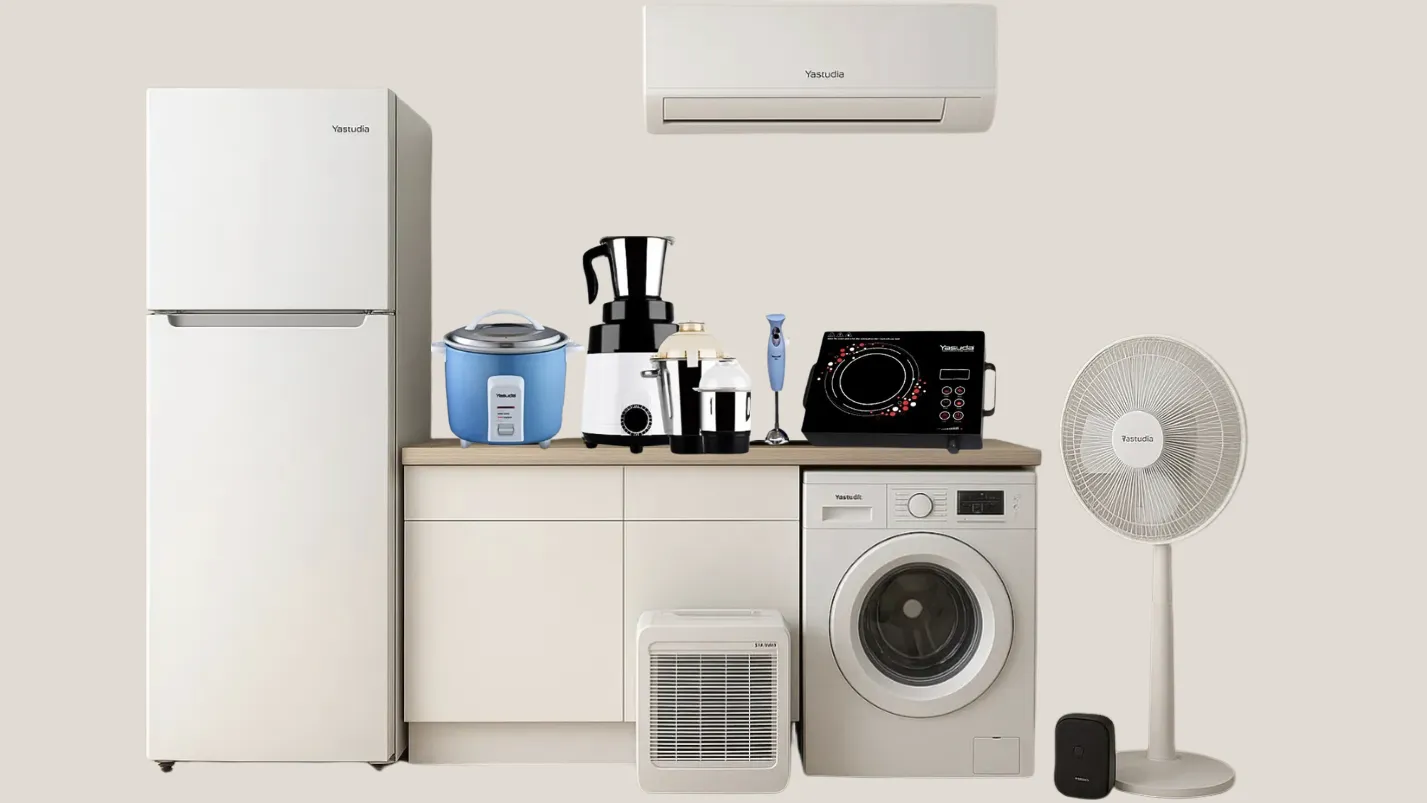Home Appliances

The best home appliances in Nepal combine energy efficiency, durability, smart features, and reliable nationwide service. Choosing the right appliances improves convenience and reduces electricity costs.
Best Home Appliances in Nepal
Choosing the best home appliances is no longer just about brand names and it’s about energy efficiency, durability, after-sales service, and value for money. Whether you’re setting up a new home or upgrading your current appliances, selecting the right products can improve convenience, reduce electricity bills, and make daily life easier.
In Nepal’s growing urban landscape from Kathmandu apartments to Pokhara family homes and modern appliances have become essential for comfortable living. This guide will help you understand which appliances matter most, what features to look for, and how to choose wisely.
Upgrade Your Home with Trusted Appliances
Browse durable, energy-efficient appliances designed for Nepali homes.
Shop Home AppliancesWhy Investing in Quality Home Appliances Matters
Home appliances are long-term investments. Poor-quality products may cost less initially but often lead to higher repair costs, energy wastage, and shorter lifespan.
The best home appliances offer:
- Energy-efficient performance
- Durability for Nepal’s voltage conditions
- Warranty and nationwide service support
- Smart features for modern lifestyles
- Affordable pricing with long-term value
1. Best Kitchen Appliances for Nepali Homes
The kitchen is the heart of every home. Essential kitchen appliances include:
Mixer Grinders
Ideal for preparing chutneys, masala, smoothies, and traditional Nepali recipes. Look for:
- 750W or higher motor
- Stainless steel jars
- Overload protection
- Multi-speed settings
These are essential for daily cooking in Nepali households.
Gas Stoves & Induction
Traditional cooking still relies heavily on gas stoves, but induction cooktops are gaining popularity in cities.
Choose:
- Toughened glass gas stoves
- Uniform flame distribution
- Energy-efficient induction models
- Auto shut-off safety features
Induction cooktops are especially popular in apartments across Kathmandu and Lalitpur.
Refrigerators
A high-quality refrigerator keeps food fresh longer and reduces waste.
Look for:
- Inverter technology
- Multi-airflow cooling
- Energy efficiency rating
- Spacious storage compartments
In Nepal’s climate, stable cooling performance is crucial.
2. Best Cooling & Heating Appliances in Nepal
Seasonal appliances are essential due to Nepal’s temperature variations.
Cooling Appliances
Energy efficiency and room-size compatibility are key.
Heating Appliances
Safety features and stable performance during voltage fluctuations are important factors.
3. Best Home Appliances for Daily Convenience
Small appliances make everyday life easier and save time.
Popular options include:
These appliances are especially useful for working professionals and small families.
How to Choose the Best Home Appliances
Before buying, consider:
- Energy Consumption: Electricity costs matter. Choose appliances with energy-saving features.
- Voltage Compatibility: Nepal often experiences voltage fluctuations. Ensure appliances are designed for local conditions.
- Warranty & Service Availability: Always check if the brand provides nationwide service centers.
- Space & Capacity: Apartments in Kathmandu require compact designs, while larger homes may need bigger capacity models.
- Budget vs. Long-Term Value: Cheap products may cost more over time due to repairs. Balance price with durability.
Why Nepali Families Prefer Local & Trusted Brands
Many customers now prefer reliable Nepali brands that understand local conditions and offer strong after-sales support.
Brands like Yasuda are growing rapidly because they provide:
- Affordable home appliances in Nepal
- Modern design & global technology
- Nationwide service network
- Durable products for Nepali homes
Choosing a trusted appliance brand ensures peace of mind long after purchase.
Best Home Appliances in Nepal – Price Range Overview
Here’s a general price range (varies by model & features):
- Mixer Grinders: Budget to mid-range
- Gas Stoves: Affordable to premium glass-top
- Refrigerators: Entry-level to inverter premium
- Water Purifiers: Basic filtration to advanced systems
- Air Fryers: Mid-range pricing for healthy cooking
Always compare features, not just price.
Frequently Asked Questions
What are the best home appliances in Nepal for new homes?
Essential appliances include a refrigerator, mixer grinder, gas stove or induction & Infrared, washing machine, and water purifier.
Which home appliances consume less electricity?
Induction and Infrared, inverter refrigerators, and energy-rated appliances consume less electricity.
Where can I buy home appliances online in Nepal?
You can purchase from official brand websites and trusted online stores offering warranty and nationwide delivery.
Are affordable home appliances reliable?
Yes, if purchased from a trusted brand with warranty support and good reviews.
The best home appliances in Nepal combine energy efficiency, durability, affordability, and reliable service. Whether you're upgrading your kitchen, improving comfort during winter, or adding convenience to your daily routine, choosing the right appliances makes a significant difference.
Invest smartly, compare features carefully, and select brands that understand Nepal’s lifestyle and environment.
Shop the Best Home Appliances in Nepal Today
Energy-efficient • Durable • Affordable • Nationwide Service
Explore Collection Now



.webp)